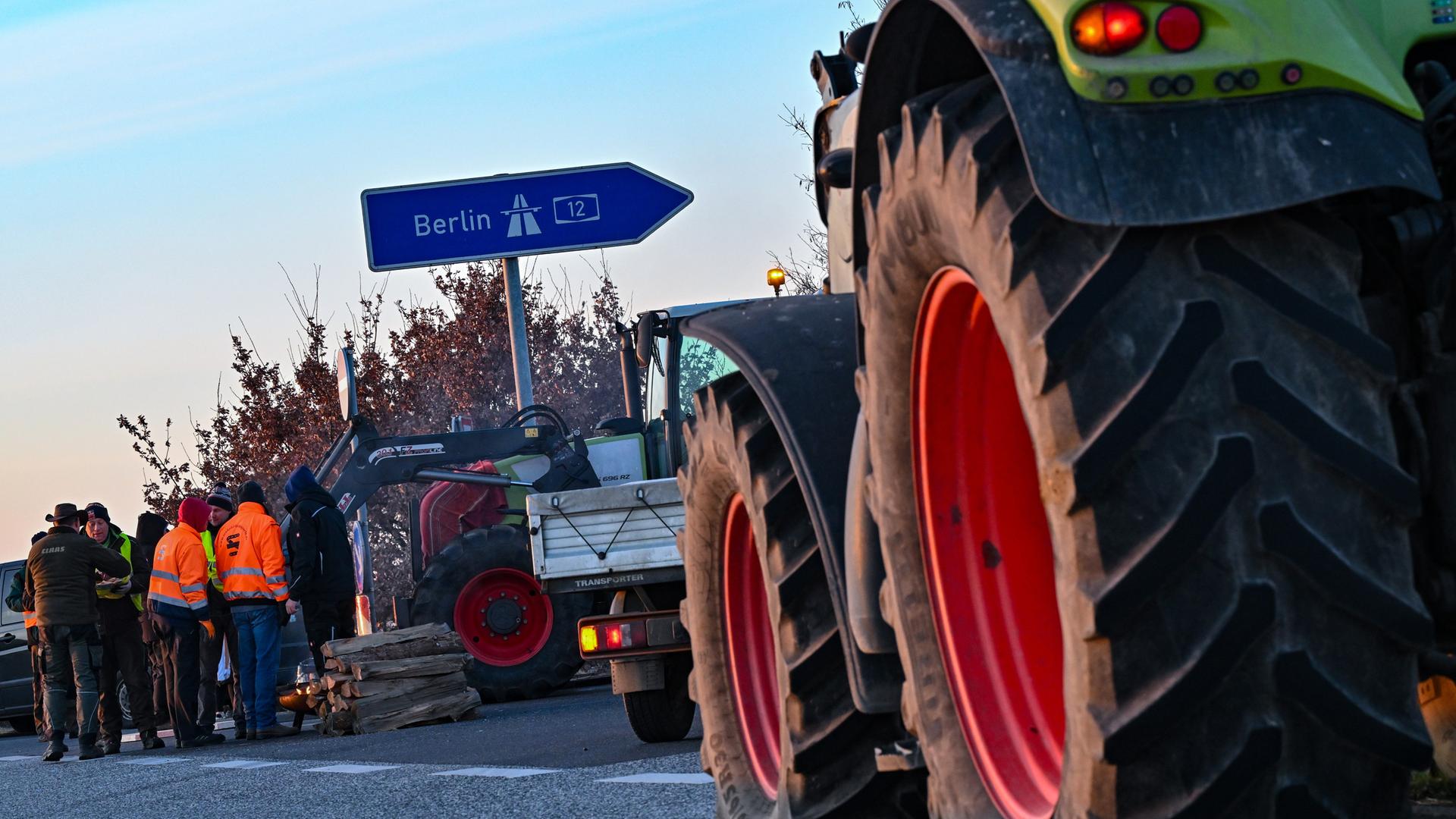The week of action ends – but also the farmers’ protests?
For a week, farmers protested against the government with numerous actions throughout Germany - and at the end they marched through Berlin.

Farmers all over Germany have been protesting all week; there is hardly a municipality in which there were no actions: from tractor rallyes to highway blockades to dialogue meetings – thousands of farmers have organized themselves in the past few days.
Finally, there will be a large demonstration in Berlin on Monday. Around 3,000 tractors, 2,000 trucks and 10,000 participants are expected in Berlin – some farmers are already there.
The German Farmers’ Association called for nationwide days of protest to protest against the federal government’s agricultural policy. The trigger was the planned elimination of subsidies. The federal government originally wanted to end the exemption from vehicle tax and the tax relief for agricultural diesel.
The federal government had already withdrawn its vehicle tax plans after the first protests – but that wasn’t enough for the farmers.
Anger goes beyond current austerity plans
Because last week it became clear: farmers are not just concerned with the current plans. The farmers and their representatives repeatedly emphasized that the new austerity measures had only been the last straw.
For years, it has become increasingly difficult for farmers to work profitably due to numerous regulations coupled with rising costs and low food prices.
“But I believe that it’s not so much about agricultural diesel,” said Agriculture Minister Cem Özdemir (Greens) on Friday in the ZDF morning magazine. The problem is that previous governments promised a lot and delivered little.
Talks planned with government
The traffic light parties have now invited the associations to talk tomorrow in order to find compromises. The subsidies for agricultural diesel are only supposed to expire gradually over three years – other approaches are now being sought.
But: The framework conditions for politics have not changed: they have to save money and they have to reduce environmentally harmful subsidies – but they express a willingness to engage in dialogue.
Are there possible solutions?
However, the government has so far remained tough on agricultural diesel. Finance Minister Christian Lindner (FDP) said in advance that everyone must make a contribution to the “normalization of state finances”. Instead, he offers a reduction in bureaucracy.
Özdemir wants to ensure more planning security. To this end, Özdemir has brought into play permanently secured financing for the conversion of animal husbandry. Better husbandry could be financed through an animal welfare tax.
Review: A week of protests in North Rhine-Westphalia
The largest and most actions took place right at the start of the action week last Monday, often in the form of tractor convoys. There were traffic delays in many cities and highway entrances were also blocked.
According to the local agricultural association, around 20,000 farmers were on the streets in Westphalia-Lippe alone. In the Wesel district, the police counted around 1,300 farmers and hauliers who were traveling with more than 950 tractors, trucks and cars. In some cases there were also unregistered meetings with tractors, for example at the town hall in Sonsbeck.
Discussions about infiltration of the right
In the run-up to the protest week, concerns grew that the protests would be infiltrated by right-wing groups. They had previously called for farmers to take part in protests and are also said to have contributed to the escalation of the protests on a ferry on which Federal Economics Minister Robert Habeck was.


